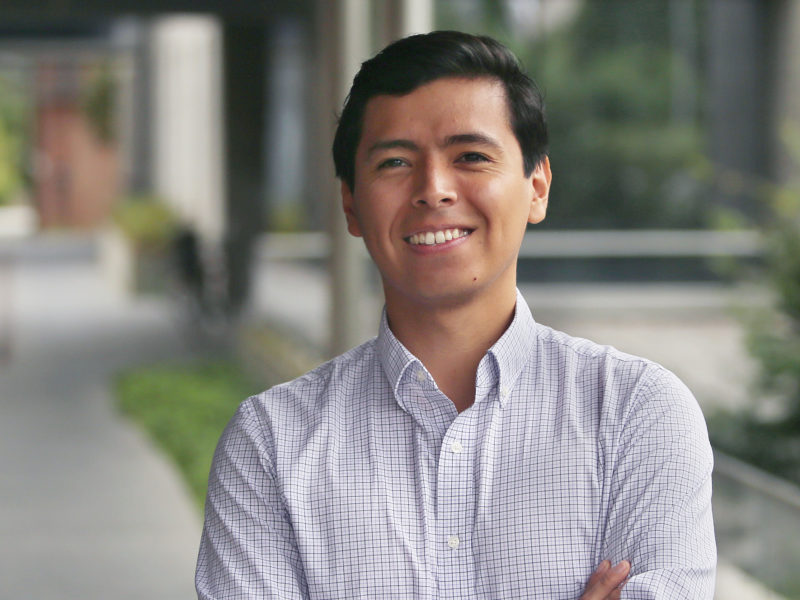
By Molly A. Seltzer
Building on a growing expertise in grid resiliency, the Andlinger Center for Energy and the Environment has appointed Luis Ceferino as its newest Distinguished Postdoctoral Fellow to study the behavior of power grids during and after natural disasters, specifically hurricanes.
Ceferino earned his doctoral degree in civil and environmental engineering at Stanford University where he studied the effects of large earthquakes on hospital systems in Peru. His thesis focused on the policy implications for emergency planning and how to optimize the flow of patients, caregiving resources, and traffic during disaster emergency responses.
At Princeton University, Ceferino will work with Ning Lin, associate professor of civil and environmental engineering, and Warren Powell, professor of operations research and financial engineering and director of the Program in Engineering and Management Systems. Ceferino’s work will leverage Lin’s expertise in hurricane and climate change modeling and Powell’s expertise in stochastic optimization theory to model power systems during hurricanes, and provide solutions for more resilient infrastructure. Ceferino will also work with researchers in the Andlinger Center’s Energy Systems Analysis Group.
Although there have been anecdotes and media reports about how solar microgrids have helped communities rebound after natural disasters, Ceferino said there is a lack of data quantifying how these distributed energy systems have reduced the duration and frequency of power outages in these circumstances. He said that he is excited to model how distributed energy resources, such as solar-and-battery-powered microgrids, can be deployed in the future to help communities bounce back quicker after storms. He hopes to identify ways that the distributed energy resources can help get key areas, such as schools and hospitals, up and running based on how the hurricanes are expected to behave and impact power systems.
“This fellowship will allow me to evaluate how modern technologies, such as solar panels, behind-the-meter storage units, and microgrids, can increase the resilience of power systems against natural disasters,” Ceferino said. “Because these technologies are new and growing at a fast pace, there is an enormous opportunity to leverage their growth, and develop solutions and policies to strengthen our power systems and make them more resilient.”
During his graduate studies, Ceferino consulted on seismic risk and structural engineering with Peruvian and U.S. engineering firms and the World Bank. Ceferino also developed a comprehensive earthquake risk visualization platform for Lima as part of the “Peru Resiliente” challenge by Peru’s Ministry of Production.
Ceferino joins Bastien Wild, Rebecca Ciez, Tapamoy Battachargee, and Kian Wee Chen in the program.
The goal of the Distinguished Postdoctoral Fellowship program is to attract promising doctoral graduates who will accelerate important areas of energy and environmental research. Fellows are encouraged to establish new collaborative links with affiliated faculty and researchers of the center through their research, which may focus on innovative technological solutions, smart economic analyses, or impactful policy solutions. Learn more and apply for the Distinguished Postdoctoral Fellowship by September 13, 2019.
Read more on the Distinguished Postdoctoral Fellows:
Andlinger Center appoints inaugural distinguished postdoctoral fellows;